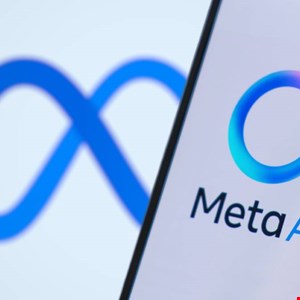- Why this Bose portable speaker is my top recommendation for most people (and it's on sale)
- Are VPN-ready routers the best home Wi-Fi upgrade? My buying advice after testing one
- This Lenovo ThinkPad ditches its traditional design for one that would make my MacBook jealous
- This portable laptop accessory solved my biggest problem with working from home
- Your TV's USB port has an underutilized feature that can save movie nights
Meta Unveils New Advances in AI Security and Privacy Protection

In a flurry of AI announcements, Meta has unveiled a suite of new tools and updates designed to bolster security, enhance privacy and strengthen protection of its Llama large language model (LLM) for the open-source AI community.
In a bid to rival OpenAI’s ChatGPT, Mark Zuckerberg’s company launched Meta AI on April 29, 2025, during its inaugural LlamaCon, an event dedicated to its Llama family of AI models.
Meta AI will be a standalone AI app powered by Llama 4, which will provide personalized responses based on users’ Facebook and Instagram accounts and integrate with Meta AI glasses. It will include a Discover feed showing how social media connections interact with the tool.
The company also shared other updates and product launches on security, privacy and open-source AI community tools during the LlamaCon event.
These include:
- LlamaFirewall, a new security guardrail tool to prevent malicious activities targeting AI models and applications
- CyberSec Eval 4, Meta’s latest edition of open-source cybersecurity benchmark suite, which includes two new tools, CyberSOC Eval and AutoPatchBench, to assess AI systems’ defense capabilities
- Llama Defenders Program, a new industry initiative to help partner organizations and developers access a variety of open, early-access and closed AI solutions to address different security needs
Meta also introduced Private Processing, a technology that the company claimed enables WhatsApp users to utilize AI features, such as message summarization, while maintaining the privacy of their messages.
The company is working with the security community to audit and improve the technology before launching it.
New and Updated Llama Protection Tools
The primary announcement for the Llama open-source community is the launch of LlamaFirewall.
Meta claimed this new tool can orchestrate across guard models and work with its suite of protection tools to detect and prevent AI system risks such as prompt injection, insecure code and risky LLM plug-in interactions.
The company released a companion paper explaining LlamaFirewall in technical detail.
Additionally, Meta released Llama Guard 4, an update to its Llama Guard tool, a safeguarding tool for Llama-based applications – for both image- and text-generation – that prevents unwanted content, including violence, sex crimes, child sexual abuse material (CSAM), self-harm, privacy and intellectual property-protected content among others.
Llama Guard 4 can be accessed through the new Llama API, currently in limited preview.
On LinkedIn, Jeff Boudier, responsible for Product and Growth at Hugging Face, said the launch of Llama Guard 4 was the “best thing out of LlamaCon.”
Meta also released Prompt Guard 2 86M and Prompt Guard 2 22M, the latest versions of its classifier model.
Meta’s New LLM Benchmark for Cyber Applications
Another important announcement at LlamaCon was the launch of CyberSecEval 4, Meta’s latest benchmark suite designed to evaluate LLMs’ security risks and capabilities in the context of cybersecurity applications.
Notably, CyberSecEval 4 includes new tools:
- CyberSOC Eval, a new framework developed by Meta with CrowdStrike to measure AI systems’ efficacy in security operation centers (SOCs)
- AutoPatchBench, a new standardized framework for security researchers and practitioners to evaluate the ability of Llama and other AI systems to automatically patch security vulnerabilities in native code through fuzzing before they can be exploited
AutoPatchBench is available to download on GitHub, while CyberSOC Eval will be released to the public in the next few weeks.
Read more: Google Researchers Claim First Vulnerability Found Using AI
Meta’s Llama Defenders Program
Finally, Meta announced that it was launching the Llama Defenders Program.
The company stated that it was making several tools available, including an Automated Sensitive Doc Classification Tool and detectors for AI-generated audio content, which could help organizations detect threats such as scams and phishing attempts.
Meta added that it was working with several companies, including Zendesk, Bell Canada, and AT&T, to integrate these tools into their systems.
The company invited other organizations to request more information on the Llama Defenders Program through its website.
Read now: Academics Develop Testing Benchmark for LLMs in Cyber Threat Intelligence

